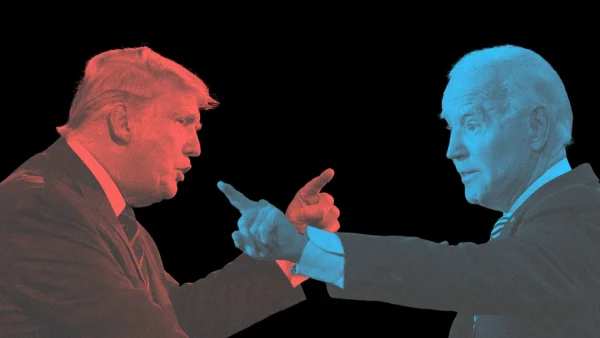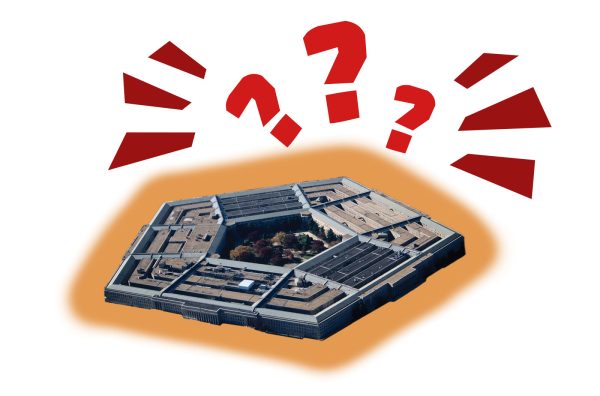The People SLU Forgot About
How SLU neglected the mental health of Resident Advisors
It is no secret that the discussion surrounding student mental health at Saint Louis University has ramped up in the last year or so. After three undergraduate students died by suicide during the 2021 – 2022 school year, the administration was forced to face a harsh reality: their students were not and are not doing well.
In response to the tragedies and an overall deterioration of student mental health, the university extended the counseling center’s hours, planned designated mental health days and fostered open discussions. However, there is one group whose struggles went unnoticed, and whose mental health suffered at the hands of SLU’s blatant disregard: Resident Advisors.
RAs are essential members of the Housing and Residence Life (HRL) team. According to their employment agreement, RAs are responsible for “identifying and assisting residents with personal, social, academic, or health-related concerns”, as well as any other duties “assigned as needed.” In the spring of 2022, a former member of the HRL leadership team even went so far as to say that they “can never take their RA hats off.”
That is precisely why RAs struggle. They are never allowed to just be students. They are not trained mental health professionals or therapists. Yet, they are expected to handle any crisis, mental health related or otherwise, that a resident may be having with minimal support from people with adequate training.
130 undergraduate students are responsible for helping with anything that happens in a residence hall during non-business hours. From 7 p.m. to 7 a.m. on weeknights there are only seven RAs on call for all of SLU’s campus. On weekend nights, there are also seven secondary RAs on call; however, that still leaves, at maximum, 14 people tasked with responding to whatever residents may call them about.
RAs offer support to residents in whatever ways they can, regularly sacrificing their mental health and well-being to be there for their kids. But unfortunately, more often than not, HRL fails to offer them much support in return.
The possible effects of secondary post-traumatic stress on RAs have not been studied much by those in student affairs, and the people who have studied or written about it are, like me, typically former RAs who believe it is an area that deserves more attention than it is getting.
While working to develop a scale of secondary trauma for resident advisors, Jason Lynch, an associate professor of Educational Foundations and Leadership at Old Dominion University, found that over a third of the RAs he surveyed reported responding to resident crises as frequently as once a month to every day.
Lynch’s findings are startling but not surprising, and SLU’s Department of Housing and Residence Life is in no way immune.
With levels of trauma on college campuses increasing, institutions are quickly finding that they do not have enough professional personnel to help students effectively. Therefore, they are turning to increased first-responder training for RAs. Case in point, HRL held mandatory mental health first aid training for all RAs in January 2022 in direct response to the two suicides in the fall and an increased need for mental health resources.
SLU relies on RAs with this additional training to respond to serious mental health incidents, but refuses to acknowledge how sitting in a room with a suicidal resident or a resident in crisis may affect the RA.
Grace Wilken, a former RA in Griesedieck Complex, emphasized that HRL’s general lack of support for their RAs last year was “astronomical” and that it “literally pulled me to one of the lowest parts of my life I think I’ve ever been in.”
Wilken also said that on the night of the first suicide, her staff “had no help for ourselves, and when we asked what we could do for ourselves, we were told that we’re gonna have to be there for our residents first.”
In an effort to voice concerns about RA mental health, Wilken met with Manisha Ford-Thomas, the Director of HRL. She was told that the overall deterioration in the mental health of RAs across campus was “not something that [the leadership team] were witnessing from their end.” Wilken received no follow-up after her meeting.
Spencer Shreve, the current lead RA in the Village Apartments, does not “remember being checked up on” after helping with serious mental health on-call situations last year. Shreve also pointed out that “the emphasis on our mental health as employees has not been on the same level [as it has been for our residents], but … you can’t help other people unless you’re okay first.”
Ally Turner, an RA in the Village Apartments, echoed Shreve’s sentiment and said that after responding to intense situations “nothing happens, you just deal with it and… write your report, and no one follows up with you… you just have to deal with it on your own.” Turner said that the responsibility of being an RA, at times, makes her feel like she’s drowning, but that “HRL doesn’t come and save you, they just kind of let you drown.”
I was an RA in Fusz Hall during the 2021-2022 school year. I loved and cared for each and every one of my residents, oftentimes to my detriment. But I did not care about that because after three student suicides, I needed to make sure my kids were okay. However, no one checked in on me, not my boss, not his boss, not the professional staff that served as backup in severe on-call situations. No one. I was the most alone I have ever been.
HRL either does not notice or actively chooses to ignore the need for mental health support among their RAs. They not only exploit their RAs by forcing them to respond to situations no college student should have to, but they fail to offer them support after they are finished handling
Your donation will support the student journalists of Saint Louis University. Your contribution will help us cover our annual website hosting costs.









